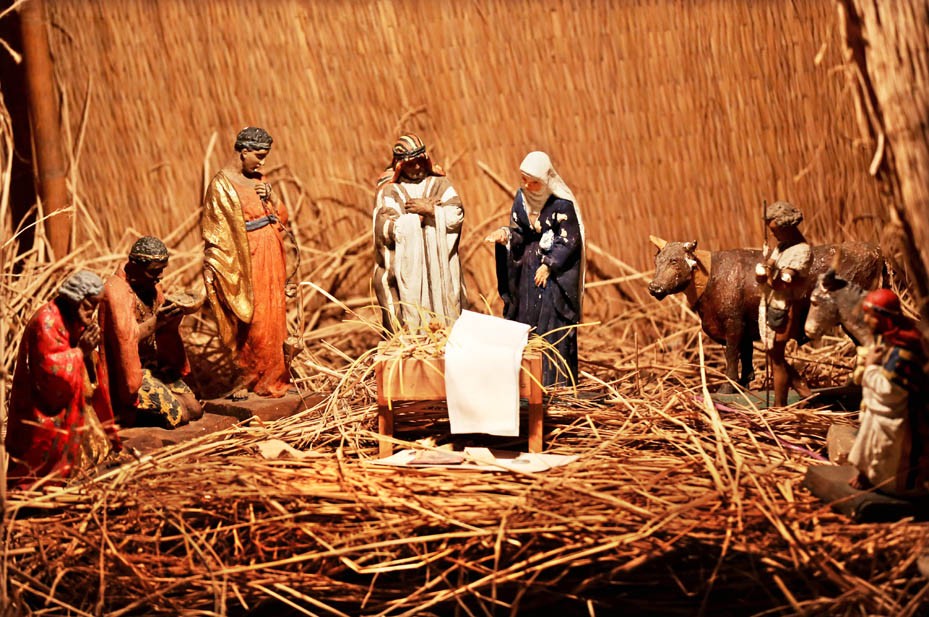
The spirit and activities of the Christian community are at their peak, their concerns notwithstanding

December this year has turned out to be a festive month. First, we had Eid Milad-un Nabi, which marks the birth of Prophet Muhammad (peace be upon him), on December 12, to be followed by Christmas celebrations that shall culminate in New Year.
As far as Christmas is concerned, the mood has already set in. Thursday last, the Church of Pakistan hosted a party in this connection in Lahore. As I am writing this feature, a mehfil-e-milad is going on in my neighbourhood.
It’s the time of the year to share what we have, do good and spread joy. It’s the time when we are reminded to particularly share with the less fortunate among us. While sharing is given much weight, it is equally important to express gratitude for what we have -- to count our blessings and be grateful for them.
Shamaila Nadeem, a senior teacher at Kinnaird College, says, "Christmas is the celebration of the coming of Christ. He taught about love, forgiveness and peace. Thanksgiving falls in the end of November. The last week of November marks the Advent, the period of four Sundays before Christmas.
"Like Ramzan, this [Christmas] is the time to give to people who are needy. It’s also a time for get-togethers and weddings. This entire month [of December] is full of activities. Church holds prayers, carol singing, and choirs. All around, our institutions stage plays, hold parties and choir singing. At Kinnaird, we have a special Christmas lunch. Fairs are also held during this month where qatlammas and all the traditional mela stuff are found. I think Christmas in Pakistan is the most festive," she adds. "In Pakistan, as well as in India, festivity is at its height with the coming together of families."
In the words of Dr Iram Anjum of Kinnaird College, "Christmas literally means ‘Christ’s Celebration’. Thus, I believe we have to keep Christ at the centre of all celebrations.
"Sometimes Christmas comes in our homes but more so it needs to come in our hearts, in our lives. The point is that sometimes we get so caught up in the ‘celebrations’ that we lose the essence of it. More than having Christmas in our homes it is important to be able to bring Christmas in others’ lives… To me, that is the real celebration of Christmas. Jesus Christ’s birth in a stable, being laid in a manger, depicts humility. Love for humanity is the real celebration of Christmas!
"Let’s celebrate Christmas as it actually should be celebrated! Merry Christmas!!"
Every year, around this time, Amjad Khan, an official of Lahore Diocese, the Church of Pakistan, makes an effort to particularly meet the elderly people he knows -- relatives, neighbours, friends and acquaintances.
Ayra Inderyas, who heads the women’s desk of Lahore Diocese, the Church of Pakistan, connects wealthy people to the poor and needy. She works with women and cultivates a culture of sharing.
Talking to TNS, Inderyas says, "Christmas gives people a reason to celebrate. Different groups hold parties in which they include their friends, and even strangers. There is candle light service in the churches, visits to orphanages and charity giving to shelter homes. The nativity scene is re-lived every year on this occasion. The church distributed rations among its workers last week."
Aside from Christmas, she finds Eid Milad celebrations quite fascinating. "In Canal Park, behind Main Market, Gulberg, I’ve seen people distributing free food to all and sundry, irrespective of colour, caste or creed.
"It sends out the message of a peaceful co-existence."
There are people who care. Technical Services Association (TSA), the first charitable Christian NGO to work for the marginalised, receives 24 kg milk daily for free from a diary farm.
"When fire broke out in Joseph Colony, Mian Mansha gave household goods to its residents," says Inderyas. "So there are people among us who care."
At the same time, she believes there are issues in the society we need to reflect on and address. She takes the occasion to voice her concerns. The socio-economic condition of a majority of Christians who are illiterate and have been left behind is her special area of interest. "It’s very challenging," she admits. "Dignity of work is missing in Pakistan.
"Christians often complain of discrimination -- a Muslim with the same qualification is given preference. If they speak about it, they risk their sustenance. So they internalise their suffering. This takes a toll on individuals and eventually their families.
"The Christian labour is asked to take separate utensils when having their meals at the factories where they work. This affects men in particular. Many have to eat in separate groups," she says, and goes on to add: "All this hurts inter-faith harmony."
It is viewed as ‘class difference’ which is a glaring phenomenon in our society. Inderyas observes that there are educated and well-off people in the community also but they are in small numbers.
Ayra Inderyas is doing research on the impediments to seeking development opportunities faced by the minorities in the country. She points to a lack of implementation of policy on domestic workers. "Nothing has been done for domestic workers," she insists. "A law has yet to be made in this regard. Many Christian girls are working as domestic help."
She views Christian diaspora from Pakistan as another issue to look into. Many Christians are stranded in Sri Lanka and Thailand. It’s time the society embraced inclusion -- love all and put an end to arrogance.